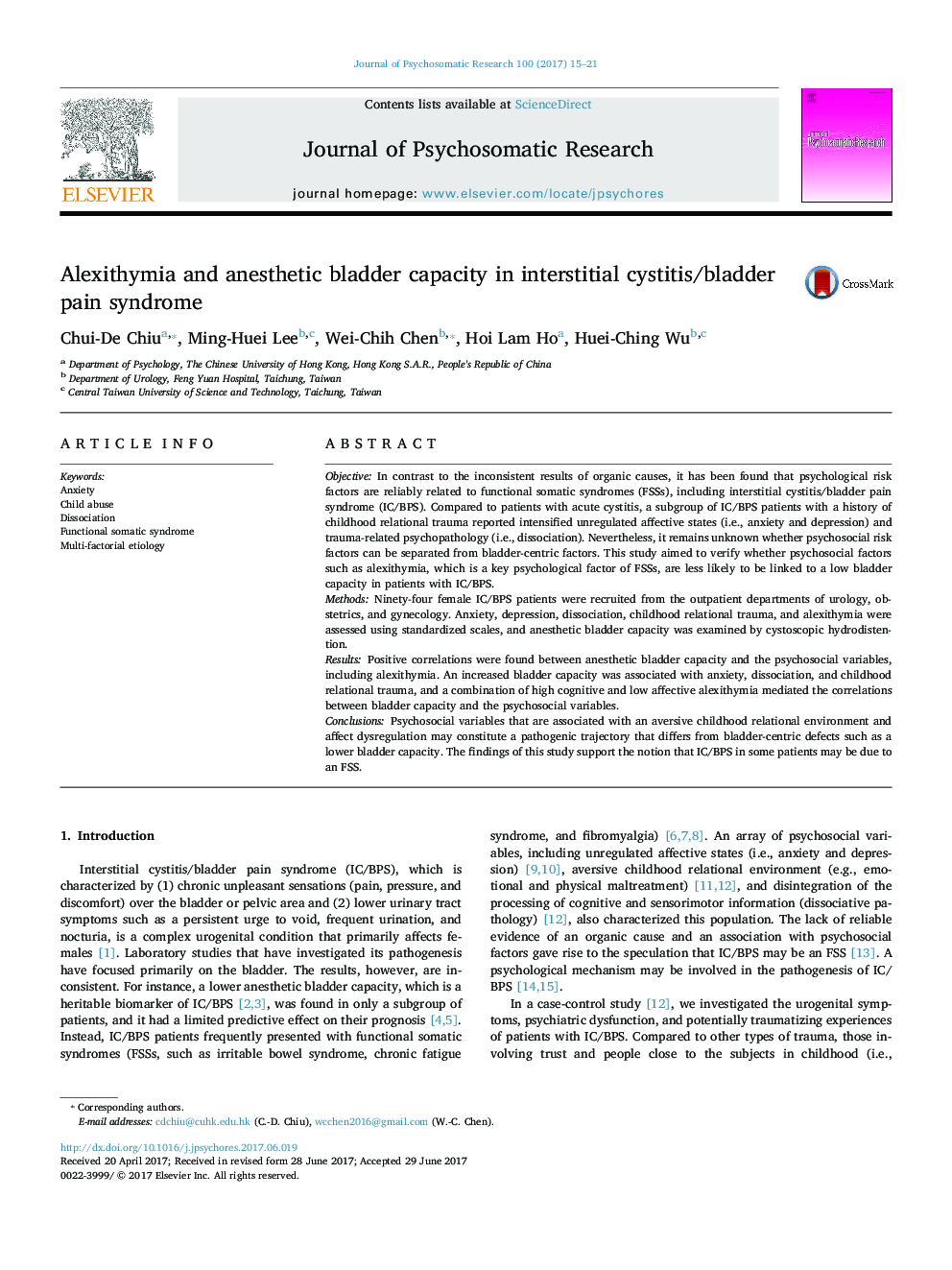| کد مقاله | کد نشریه | سال انتشار | مقاله انگلیسی | نسخه تمام متن |
|---|---|---|---|---|
| 5045798 | 1475895 | 2017 | 7 صفحه PDF | دانلود رایگان |
- Increased anesthetic bladder capacity was associated with childhood relational trauma, anxiety, and dissociative pathology.
- Cognitive alexithymia together with normal affective reactivity also correlated with increased anesthetic bladder capacity.
- Alexithymia can explain the link between anesthetic bladder capacity and the psychosocial variables.
ObjectiveIn contrast to the inconsistent results of organic causes, it has been found that psychological risk factors are reliably related to functional somatic syndromes (FSSs), including interstitial cystitis/bladder pain syndrome (IC/BPS). Compared to patients with acute cystitis, a subgroup of IC/BPS patients with a history of childhood relational trauma reported intensified unregulated affective states (i.e., anxiety and depression) and trauma-related psychopathology (i.e., dissociation). Nevertheless, it remains unknown whether psychosocial risk factors can be separated from bladder-centric factors. This study aimed to verify whether psychosocial factors such as alexithymia, which is a key psychological factor of FSSs, are less likely to be linked to a low bladder capacity in patients with IC/BPS.MethodsNinety-four female IC/BPS patients were recruited from the outpatient departments of urology, obstetrics, and gynecology. Anxiety, depression, dissociation, childhood relational trauma, and alexithymia were assessed using standardized scales, and anesthetic bladder capacity was examined by cystoscopic hydrodistention.ResultsPositive correlations were found between anesthetic bladder capacity and the psychosocial variables, including alexithymia. An increased bladder capacity was associated with anxiety, dissociation, and childhood relational trauma, and a combination of high cognitive and low affective alexithymia mediated the correlations between bladder capacity and the psychosocial variables.ConclusionsPsychosocial variables that are associated with an aversive childhood relational environment and affect dysregulation may constitute a pathogenic trajectory that differs from bladder-centric defects such as a lower bladder capacity. The findings of this study support the notion that IC/BPS in some patients may be due to an FSS.
Journal: Journal of Psychosomatic Research - Volume 100, September 2017, Pages 15-21
